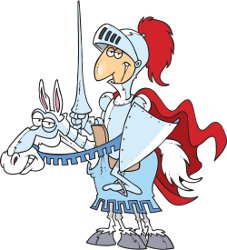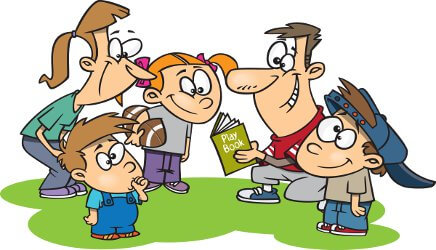Prefixes and Suffixes Worksheets
Prefixes and suffixes are very important in English. They are sets of letters that are often placed at the beginning of a word (a prefix) or at the end of a word (a suffix) to change its meaning.
Click Here for Step-by-Step Rules, Stories and Exercises to Practice All English Tenses
This is why we often see words that look similar, but have different beginnings or endings, and have similar meanings. Learning the most common prefixes and suffixes will help you to learn lots of new vocabulary. Look at the examples and tables in this article and practice with these prefixes and suffixes worksheets. You'll start to feel comfortable with them very quickly!
Prefixes and suffixes are two kinds of affixes. Review them before continuing with these worksheets.
First, let's go over some of the most common prefixes and suffixes and how they are used.
Prefixes
A prefix is a set of letters that is added to the beginning of a word to change its meaning. Each prefix has a general meaning, so you will be able to understand what a word with a prefix means more easily.Let's look at an example.
| friendly | unfriendly |
 |  |
The second man looks unfriendly. I don't think it would be much fun to spend time with him!
We can see in the second sentence that we added the prefix "un-" to the word "friendly." This prefix "un-" means "not" or "the opposite of."
Here are more examples with the prefix "un-":
- happy ----> unhappy
- finished ----> unfinished
- believable ----> unbelievable
- acceptable ----> unacceptable
Look at these examples:
- do ----> undo
- plug in ----> unplug

But, be careful! Be sure you've seen the whole prefix before you decide the word's meaning.
Look at the word below:
- underdeveloped
We know the word "develop," which means "to grow bigger or become more advanced." This is the root of our word!
So, the prefix must be under, which means "below," "lower," or "not enough." The word underdeveloped means "not developed enough."
The table below has some common prefixes, their meaning, and an example word.
| Prefix | Meaning | Example word |
| dis- | not, opposite of | disagree |
| in-, im- | not | incorrect, impossible |
| mis- | incorrectly | misunderstand |
| re- | again | redo (do again) |
| un- | not | uninteresting |
| under- | below, lower, not enough | underwater |
Suffixes
A suffix is a set of letters that is added to the beginning of a word to change its meaning. Each suffix has a general meaning, so you will be able to understand what a word with a suffix means more easily.Let's look at an example.
| love | lovable |
 |  |
The couple is getting married because they love each other very much.
That teddy bear is so cute and lovable!
We can see in the second sentence that we added the suffix "-able" to the word "love." This suffix "-able" means "capable of being" or "able to be."
So, the word lovable means something is able to be loved, or it makes you feel love for it.
Here are more examples with the suffix "-able" or "-ible" (depending on the root word):
- present ----> presentable
- comfort ----> comfortable
- depend ----> dependable
- reach ----> reachable
Some suffixes are noun suffixes. They always make a noun. For example, "-ment" talks about an "action" or a "process":
- enjoy ----> enjoyment
- treat ----> treatment
- govern ----> government
- development
The table below has some common adjective suffixes, their meaning, and an example word.
| Suffix | Meaning | Example word |
| -able, -ible | able to be | terrible |
| -ful | full of | beautiful |
| -less | not having, without | toothless |
And here are some noun suffixes, their meaning, and an example word.
| Suffix | Meaning | Example word |
| -dom | place or state of being | freedom |
| -er | a person who does | worker |
| -ment | action or process | payment |
| -ness | state of being | happiness |
Now that we've learned some common prefixes and suffixes, it's time to practice!
Exercise A: Prefixes
Complete the sentences by writing the correct prefix in the blank space. You can use a dictionary to help you.dis- -in mis- re- un- under-
1. I just can't believe it! The story is _____believable!
2. No, that answer is _____correct. It is wrong.
3. Let's look at this information again. We should _____view it before the test.
4. I saw Allison just a moment ago, but now I can't find her! It seems that she _____appeared!
5. Oh, I'm sorry, I didn't hear you correctly. I _____understood you.
6. The subway does not go over the land like a normal train. It moves _____ground.
Exercise B: Adjective suffixes
Complete the words that describe the pictures below. Use the suffixes from the list.-able -ful -less
1. The first woman is very tired. She wants to rest!
The second woman can't stay still. She always wants to move! She is rest_____.


2. The first dog isn't cute. He's a little scary!
The second dog is very cute! He's ador_____!


3. Jason writes lots of lists, so he always remembers what he has to do. He never forgets!
But Melanie can't remember anything! She's very forget_____!


Exercise C: Noun suffixes
Complete the sentences that describe the pictures using the correct suffix. You can use a dictionary to help you.-dom -er -ment -ness
1. I teach science in big a university. I am a physics teach_____.

2. Sir Alan is King Richard's best knight. He is brave and strong. He is the most important knight in Richard's whole king_____!

3. Henrietta is my best friend. She is wonderful! The best thing about her is her kind_____. She is always so nice to people!

4. The kids always have fun together. They never disagree or have an argu_____.

Answer Key
Exercise A: Prefixes
1. I just can't believe it! The story is unbelievable!2. No, that answer is incorrect. It is wrong.
3. Let's look at this information again. We should review it before the test.
4. I saw Allison just a moment ago, but now I can't find her! It seems that she disappeared!
5. Oh, I'm sorry, I didn't hear you correctly. I misunderstood you.
6. The subway does not go over the land like a normal train. It moves underground.
Exercise B: Adjective suffixes
1. The first woman is very tired. She wants to rest!The second woman can't stay still. She always wants to move! She is restless.
2. The first dog isn't cute. He's a little scary!
The second dog is very cute! He's adorable!
3. Jason writes lots of lists, so he always remembers what he has to do. He never forgets!
But Melanie can't remember anything! She's very forgetful!
Exercise C: Noun suffixes
1. I teach science in big a university. I am a physics teacher.2. Sir Alan is King Richard's best knight. He is brave and strong. He is the most important knight in Richard's whole kingdom!
3. Henrietta is my best friend. She is wonderful! The best thing about her is her kindness. She is always so nice to people!
4. The kids always have fun together. They never disagree or have an argument.
Get Updates, Special Offers, and English Resources
Download your FREE GIFT (the first two chapters of
English Short Stories Book and Workbook)
as soon as you join!

By submitting your email, you consent to receiving updates and newsletters from us and to the sharing of your personal data with third parties for the purposes of sending you communications. We will not spam you. You can unsubscribe at any time. For more information, please see our privacy policy.
Return
from Prefixes and Suffixes Worksheets
to English Word Formation Process
Return to
Really Learn
English Home Page





